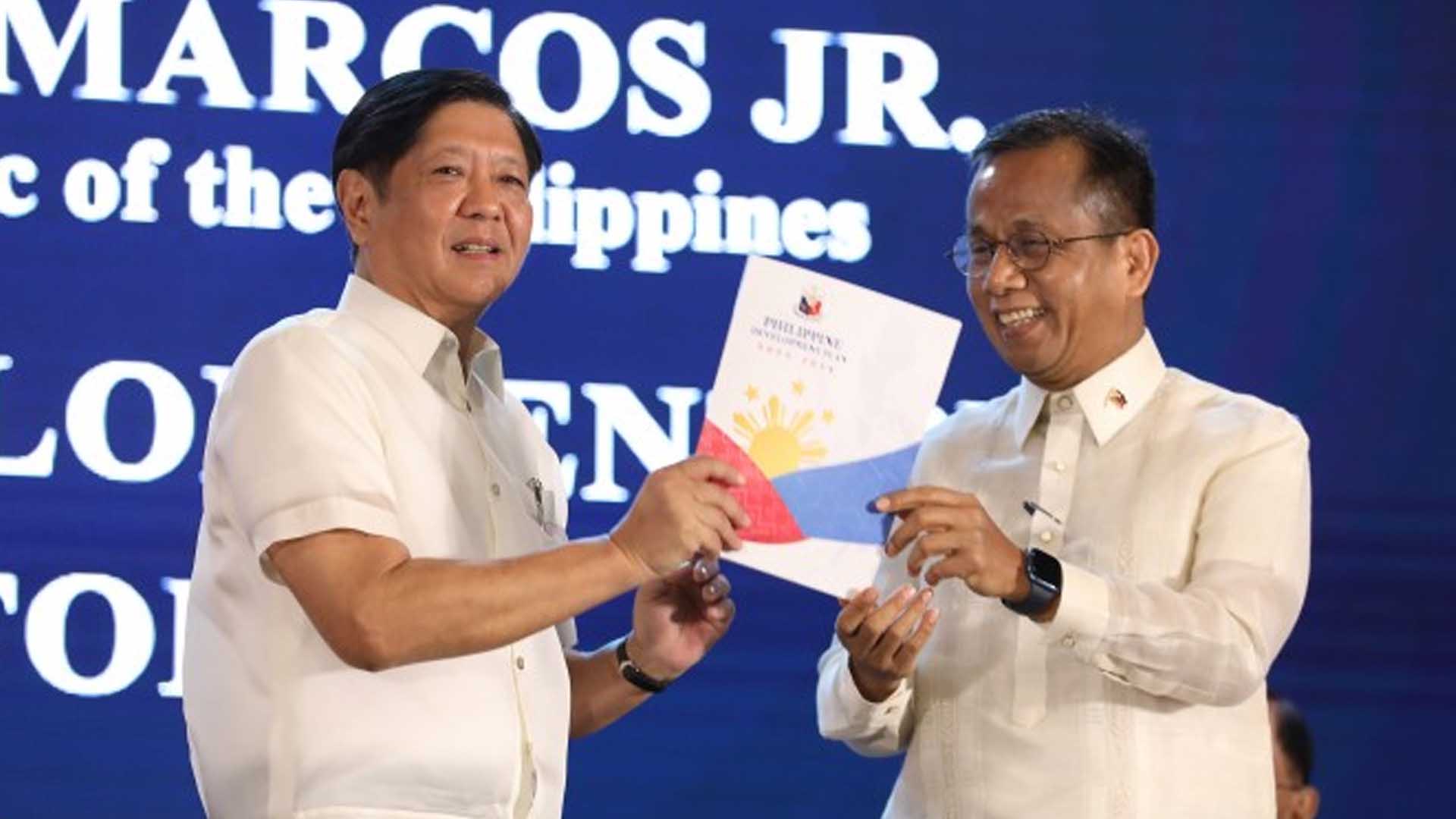The Philippine economy remains on track to returning to its high-growth trajectory, backed by several initiatives implemented by President Ferdinand R. Marcos Jr.’s administration.
“One year into the Marcos Presidency, the Philippine economy remains firmly on track as it returns to its high-growth norm, supported by a strong labor market performance and a downward-trending inflation that is on its way to reaching the government’s target,” National Economic and Development Authority (NEDA) Secretary Arsenio Balisacan said in a statement over the weekend.
Balisacan admitted that the president began his term “under very challenging and unique circumstances” brought about by the Covid-19 pandemic, and strict quarantine measures imposed to prevent the further spread of the virus caused the Philippine economy to contract by 9.5 percent in 2020.
Balisacan said the significant contraction “came with a number of socioeconomic setbacks” which include high national debt, social and economic scarring in terms of learning losses, business closures, and a high unemployment rate.
“Recognizing the immediate issues at hand, the President crafted his 8-Point Socioeconomic Agenda, a list of priorities that would guide the policies, programs, and initiatives of his presidency,” said Balisacan.
“The agenda not only focuses on pressing, short-term issues such as inflation, a tighter fiscal space, and socioeconomic scarring but also on priorities for the medium term to reinvigorate higher-quality job creation and accelerate poverty reduction in the next six years,” he added.
According to Balisacan, the Marcos administration’s priorities were key in shaping his Economic Team’s early initiatives and outputs, including the country’s Medium-Term Fiscal Framework, which ensures the alignment of the legislative agenda with the attainment of sound fiscal targets; the PHP5.268-trillion budget this year which focuses on the identified socioeconomic priorities of the President; and the Philippine Development Plan 2023-2028, the country’s medium-term development blueprint to effect socioeconomic transformation for a prosperous, inclusive, and resilient society.
He said the further reopening of the economy revived consumption, allowing the country’s gross domestic product to expand by 7.7 percent in the third quarter of 2022, 7.1 percent in the fourth quarter of 2022, and 6.4 percent in the first quarter of 2023.
For full-year 2022, the Philippine economy grew by 7.6 percent, exceeding the government’s 6.5 to 7.5 percent target.
“These indicators paint a promising picture of a sustained recovery for 2023,” said Balisacan.
The government aims to attain a 6 to 7 percent economic growth expansion this year.
He added that unemployment rate also went down to 4.5 percent as of April this year from 5.7 percent in April 2022 while inflation also decelerated from a high of 8.7 percent in January this year to 6.1 percent in May.
Inflation, he said, is expected to further ease and settle within the government’s 2 to 4 percent target range by the end of the year.
Balisacan said Marcos created a more open and enabling regulatory and investment policy environment and has shown his deep commitment to pursuing sound and cohesive policies by having a Cabinet with members who capably understand the constraints that need to be addressed to realize the President’s socioeconomic agenda.
He added that the Philippines also further opened its economy to trade, investment, and competition with its accession to the Regional Comprehensive Economic Partnership (RCEP); creation of Green Lanes for Strategic Investments; amendments to the Implementing Rules and Regulations of the Renewable Energy Act and the Build-Operate-Transfer Law; and changes to the NEDA Joint Venture Guidelines.
Marcos also convened the National Innovation Council (NIC), citing the need to establish a dynamic innovation ecosystem to sustain rapid economic growth and improve the quality of life in the long term.
“Lastly, the NEDA Board, chaired by President Marcos, has been actively pushing for the rigorous assessment and swift approval of major projects to ensure their timely and effective implementation while upholding public interest,” said Balisacan.
The NEDA chief assured that the Marcos administration remains committed to ensuring that the poor and vulnerable are protected from economic shocks.
Some of the initiatives implemented to ensure this include the provision of targeted transfers and assistance to those hardest hit by inflation; establishment of the Inter-agency Committee on Inflation and Market Outlook to monitor supply and demand conditions proactively for essential commodities and recommend timely policy interventions to manage inflation; approval of the Social Protection Floor to institutionalize basic social security guarantees; and ramped up rollout of the National Identification to have a more efficient and inclusive social protection system.
“Overall, despite the many challenges and headwinds it has faced, the Marcos Administration has successfully navigated its first full year in office but recognizes that much is yet to be done. Guided by the strategies it has formulated and the frameworks it has instituted, the government shall continue to work with the private sector and members of civil society so that the country may progressively attain its ambitious development targets,” Balisacan said. (PNA)








